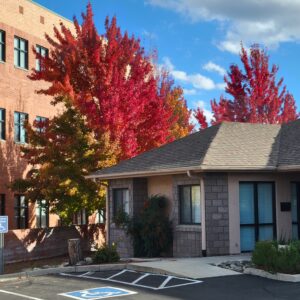DISCOVERY (LITIGATION)
Arizona lawsuits are governed by many rules. Prescott AZ lawyers must follow rules of evidence, rules of procedure, and other rules. The Arizona Rules of Civil Procedure govern the conduct of lawsuits. These rules contain a variety of “discovery” rules or rules which provide the authority to investigate and obtain information to be used at trial.
Arizona rules require each party to provide disclosure of relevant facts, witnesses, and other information to the other side. Full disclosure is required. Even with full disclosure, the ability to conduct discovery aids the fact-finding process.
There are a variety of vehicles, or methods, for obtaining discovery. The most common methods are interrogatories, depositions, request for production, request for admission, independent medical exam, and subpoena.
Interrogatories
Written questions, called “interrogatories” may be submitted to an adversary to be answered in writing and under oath. Arizona permits two (2) different types of interrogatories to be used. Form or pattern questions, known as “uniform” interrogatories may be used. There are uniform interrogatories for accident cases, contract cases, divorce cases and others. Non-uniform interrogatories are questions that you draft for the specific situation involved. There are limits on the number of interrogatories, when they may be used and how they must be served.
Deposition
One of the best discovery tools is the “deposition.” A deposition is an interview, under oath, in the presence of a court reporter who transcribes the testimony. A deposition is usually conducted in a lawyer’s office in an informal setting.
A deposition is useful for many reasons. A deposition may preserve a person’s testimony. If a person is unavailable at the time of trial (due to death, disappearance, relocation or other cause), the deposition transcript may be read. While this is not as good as live testimony, it is better than no testimony at all.
A deposition may be used to quickly discover information. In a deposition, you have an opportunity to meet the person being deposed and “size them up.” A deposition can be used later to support or oppose a motion, such as a motion to dismiss the lawsuit.
A deposition may also be used to “impeach” the witness at trial. If the witness testifies at deposition that the stoplight was red, but says at trial that it was green, the inconsistency can be used to point out the difference in the witness’ testimony. Sometimes such a difference occurs due to completely innocent reasons, such as new information coming to the attention of the witness. Other times, the witness may simply be lying.
A deposition is expensive. Sufficient time must be spent prior to the deposition to prepare for it. The right questions have to be asked. The deposition has to be transcribed by a certified court reporter and often reviewed or summarized afterward in order to find the most important areas of the transcript. In complex cases, many depositions may have to be taken, at a cost of thousands of dollars.
Request for Production
A written request to produce documents or things may be sent to the adversary. This discovery device is called the request for production. A request for production requires the party receiving the request to produce the documents or things identified in the request. There are limits on the number of requests, when they may be used and how they must be served.
Request for Admission
A request for admission is a written request that a party admits the truth of certain facts or the genuineness of certain documents. If the fact is admitted, it is taken as an established fact at trial. If the fact is denied, the party sending the request must prove the fact. If the fact is then proved, the party sending the request may ask for an order requiring the party who denied the request to pay the costs incurred in proving the fact. Requests for admission are a method not only for obtaining information but also for shifting the cost of litigation to the adverse party.
Independent Medical Examination
Another discovery device is the independent medical examination, or “IME.” An IME may be used where the physical or mental condition of a party is in issue. An IME requires the adverse party to submit to an examination by the medical expert you select.
Subpoena
Another discovery device is the subpoena. A subpoena may be directed to a non-litigant to obtain production of relevant documents. Arizona subpoenas must contain certain language to notify the recipient of their rights and responsibilities. There are specific requirements for service of a subpoena, including the payment of a witness fee and mileage.
A request for production differs from a subpoena in several respects. A subpoena is a command from the Court; a request for production is a request from an adverse party. A subpoena that is disobeyed may be enforced by the Court’s contempt powers. A request for production that is disregarded requires a Court order for enforcement.
Knowing how and when to use the various discovery methods requires skill, education, training, experience and the capable use of legal judgment. Effective use of discovery often is the decisive factor in how a case turns out. Good discovery may lead to good results.

